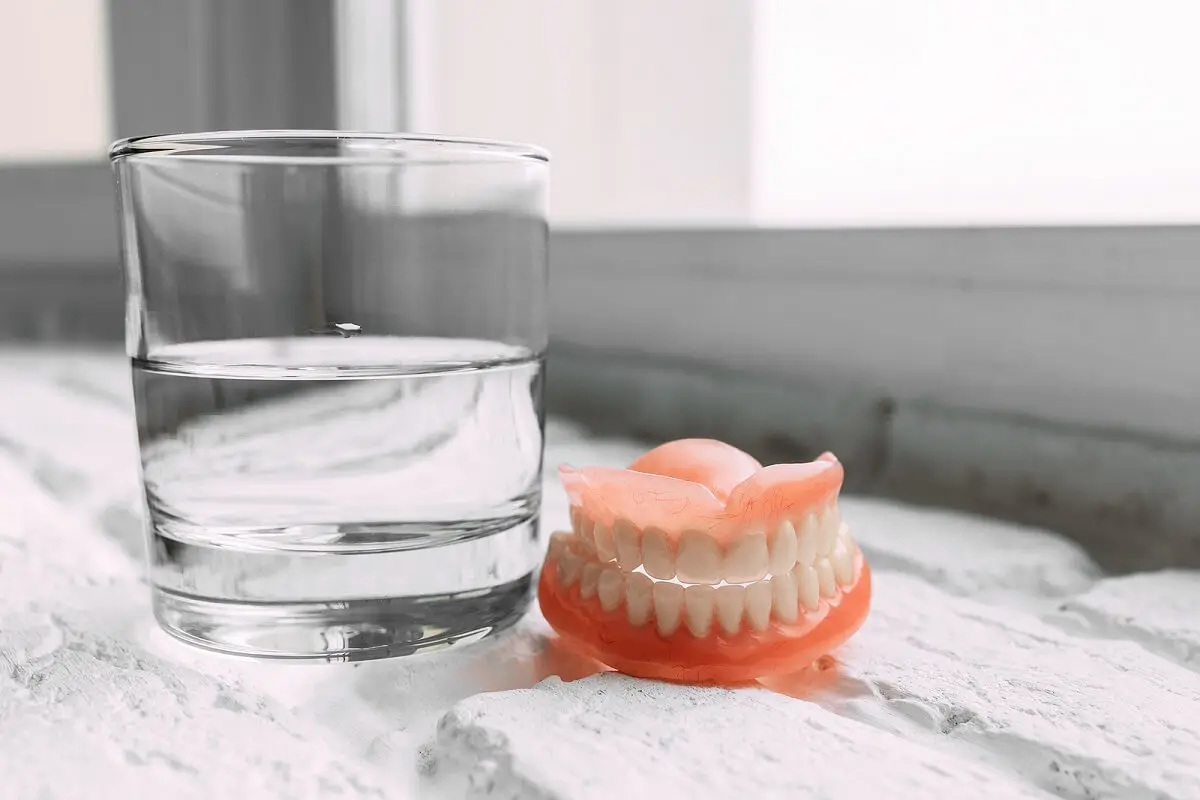The Relationship Between Dementia and Dental Health


Written and verified by the dentist Vanesa Evangelina Buffa
All the different parts of the body are connected to each other, and so problems in one area can cause affect other areas that are quite far away. In this article, we’ll tell you about the relationship between dementia and dental health.
Neglecting oral health doesn’t only cause dental diseases; it can also have consequences in other body systems far removed from the mouth and promote the development of many disorders. Dementia is one of them.
We must also consider that patients suffering from dementia aren’t able to perform necessary daily activities by themselves. Therefore, if someone else doesn’t take care of them, oral health care often disappears. Are you interested in finding out more about it? Read on!
The relationship between dementia and dental health
Poor dental hygiene and bacterial build-up in the mouth lead to diseases of the teeth and gums. It can also lead to disorders in other parts of the body. There’s evidence of a link between periodontal problems and diabetes, as well as heart and vascular conditions, for example.
The state of dental health is also associated with the onset of neurological disorders, such as dementia. This progressive neurodegenerative disease alters the body’s ability to perform normal activities. It impairs memory, reasoning, and communication, as well as altering behavior.
While the precise etiology is still unknown in many cases, what we do know is that chemical changes in the brain and death of nerve tissue occur. There’s an association between oral germs and the development of these disorders. Microorganisms in the mouth could reach the brain and cause inflammation and significant damage.
People who don’t brush their teeth and have poor oral hygiene are more likely to develop mental illness. Therefore, habits that take care of the mouth are crucial in order to reduce the risks in the future.
However, when dementia has already developed, there’s still a close relationship with the mouth. Dementia has a negative impact on dental health. In fact, studies suggest that incidences of oral health problems are higher in people with cognitive impairment.
The inability to perform daily activities makes it difficult to maintain oral care routines. This results in a higher prevalence of caries, periodontal disease, untreated lesions, and tooth loss.

Common dental health problems in people with dementia
People with dementia may experience a variety of dental health problems. Decreased ability to maintain proper dental hygiene or dentures is one of the most significant causes of oral deterioration.
In addition, dry mouth, changes in diet, and the medication used to treat these disorders all contribute to the development of disease. What are the most common health problems? Here’s a list of them.
Gingivitis and periodontal disease
When oral hygiene is inadequate, bacteria and food debris build up on tooth surfaces and gums. This is called “bacterial plaque”. If it isn’t removed with daily brushing, it can become calcified, which leads to tartar or dental calculus.
These accumulations of bacteria and tartar cause inflammation of the gingival tissue or gingivitis. The gums become bright red, swollen, painful, and bleed easily. Without prompt treatment, this can progress to periodontal disease.
The inflammation progresses and there’ll be infection of the tissues that support the teeth. As a result, deep pockets form in the gums, which contain tartar, bacteria, and pus. In addition, the bone that holds the teeth in place wastes away, causing them to move or come out.
As if that weren’t enough, this inflammation doesn’t only has consequences in the mouth. As a study by the University of Cartagena shows, it also worsens and accelerates the progression of cognitive impairment in certain neurological conditions, such as Alzheimer’s.
You may be interested in: Mouth Infection: A Possible Onset of Alzheimer’s
Dental caries
Caries is another common dental health problem in people with dementia. Tooth crowns, element necks, and roots are the most common locations of lesions in these patients.
We’re talking here about the destruction of the hard tissues of the tooth by the action of acids produced by bacteria in the mouth as they metabolize carbohydrates in the diet. The lack of dental hygiene and a diet abundant in sugars favor its appearance.
If the loss of minerals from the teeth isn’t treated promptly, the tooth is destroyed. The lesion advances towards the center of the tooth element, where the pulp is located. Thus, patients may experience sensitivity, pain, and complications such as infections or fractures.
Dry mouth
Xerostomia or dry mouth is a fairly common dental health problem in patients with dementia, especially those taking antidepressants and sedatives. Many medications used to treat dementia decrease salivary production, resulting in dryness.
The lack of hydration in the mouth causes discomfort when eating, swallowing, and speaking. It also causes problems with dentures by making it difficult for them to stay in place or making them uncomfortable to wear. It also encourages the development of cavities and periodontal disease.
Discover more about this condition here: 5 Homemade Remedies to Relieve a Dry Mouth
Other oral problems
Dementia can lead to other dental health problems, such as mucosal lesions. The neglect and lack of maintenance of dentures is associated with stomatitis, hyperplasia, ulceration, and mycosis in the mouth.
Inflammation of the corners of the mouth (cheilitis) and the rest of the oral mucosa (mucositis) are also common in these patients. They may even have hyperplasia or enlargement of the gums due to the use of certain medications.
The importance of taking care of dental health in people with dementia
Looking after the dental health of people with dementia is crucial in order to avoid the problems mentioned above. In general, this has the following benefits:
- Improved quality of life: Patients will be able to perform oral functions without discomfort. They’ll be able to speak and eat comfortably, without pain, and with an appearance that gives them security and confidence.
- Medical issues: Minimizing oral microorganisms prevents complications of the disease or the development of new disorders in other parts of the body. In addition, the side effects of some medications used to treat dementia are controlled.
- Dental reasons: Oral health care prevents the onset and development of oral pathologies and their complications. This keeps teeth and mucous membranes healthy, which avoids emergency visits and the need for dental extractions.
- Improves behavior: Suffering from discomfort or pain in the mouth can lead people with dementia to become irritable or aggressive. They may even refuse to feed or clean themselves.
Tips for maintaining dental health in cases of dementia
Caring for people with dementia can become difficult, and here are some tips that can help maintain oral health.
1. Oral hygiene
Proper oral hygiene is essential for dementia patients. It’s essential to remove plaque deposits from the teeth and gums. If the person hasn’t lost the ability to maintain their care routines, they can do this themselves.
This should include regular tooth and gum brushing, three times a day, with a soft toothbrush and fluoride toothpaste. In addition, you may want to use floss, irrigators, or interdental brushes to clean the area between your teeth.
Your dentist may also recommend using fluoride or chlorhexidine mouth rinses. These products help decrease bacterial growth and the appearance of cavities.
If the person’s ability to manipulate the toothbrush or perform the cleaning routine is impaired, it’s important for caregivers or family members to assist the person with this task. Different techniques can be used for this purpose:
- Give directions: Short, precise commands to break down the process into small steps; take the toothbrush, put the toothpaste on, put it in the mouth, and so on.
- Copying: The person is encouraged to copy another person standing in front of them who is also cleaning their teeth.
- Bridge: The person with dementia holds a toothbrush and the caregiver cleans the teeth with another toothbrush.
- Hand over hand: The patient holds the toothbrush, and the caregiver’s hand guides the movements to clean the teeth together.
- Yawning: The caregiver yawns in front of the person with dementia to stimulate their mouth to open and use the moment to brush their teeth.
2. Caring for dentures
If the person wears dentures, their maintenance is of utmost importance. The dentures should be removed from the mouth when brushing the teeth. It should also be cleaned properly with ordinary soap and water. A soft toothbrush should be used for this purpose.
Every one to two weeks, the denture should be dipped in a glass with an effervescent antiseptic tablet to clean the deepest impurities. In addition, every night it’s recommended to remove the prosthesis and leave it in a glass of water.
Note: If the patient lives in a nursing home, writing the name and surname on the dentures will avoid confusion or misplacement.

3. Control the diet
To maintain proper dental health, dietary care is essential. Controlling the intake of carbohydrates and reducing the consumption of refined sugars and ultra-processed foods brings well-being to the person and reduces the risk of oral pathologies.
Adequate hydration, preferring water over other drinks, is also important. This counteracts the dry mouth that is so common in these people.
4. Regular visits to the dentist
It’s very important for people with dementia to continue to visit the dentist regularly. The dentist can help maintain dental health, detect problems early, and advise caregivers on oral care.
If it’s possible to continue with their usual dentist, who the patient is already familiar with, then acceptance of treatment may be easier. However, there are more severe cases that will require the attention of specialized professionals.
We recommend that the person with dementia attends dental check-ups accompanied by a caregiver or family member. This will avoid moments of tension or stress when faced with unknown surroundings.
When visiting the dentist it’s essential to inform them of the diagnosis of dementia. It’s also helpful to bring a complete medical history and a list of medications the person is taking to the appointment.
Commitment to dental care
Dental health care involves practicing habits that dementia patients can’t sustain on their own. Having family members, caregivers, and dentists who are committed to their well-being is essential. With the right support, deterioration of oral health can be prevented.
All cited sources were thoroughly reviewed by our team to ensure their quality, reliability, currency, and validity. The bibliography of this article was considered reliable and of academic or scientific accuracy.
- Pynn, T. P., & Kolic, J. E. (2014). Oral health and dementia: Obstacles, assessments, and management of patients with dementia. Oral Health, 6.
- Torales, J., Barrios, I., & González, I. (2017). Problemáticas de salud bucodental en personas con trastornos mentales. Medwave, 17(08).
- McConnell, E. S., Lee, K. H., Galkowski, L., Downey, C., Spainhour, M. V., & Horwitz, R. (2018). Improving oral hygiene for veterans with dementia in residential long-term care. Journal of nursing care quality, 33(3), 229-237.
- Díaz Caballero, A. J., Hernández Nieto, L. D. C., & Rodríguez Berrio, A. (2020). Relación entre Alzheimer y la enfermedad periodontal. Revisión tipo paraguas.
- Betancourt, B. M. M. (2015). Relación entre la enfermedad periodontal y la diabetes mellitus. Archivo Médico de Camagüey, 19(2), 92-95.
- Bascones-Martínez, A., Muñoz-Corcuera, M., & Bascones-Ilundain, J. (2015). Diabetes y periodontitis: una relación bidireccional. Medicina Clínica, 145(1), 31-35.
- Mejía-Pérez, P. N., Arbeláez-Lelión, D., & Múnera, M. C. (2017). Una mirada al manejo odontológico del paciente geriátrico con demencia. CES Odontología, 30(1), 51-67.
- Caballero, J. (1991). Reflexiones sobre atención dental en la demencia. Revista vasca de odonto-estomatología= Odontoestomatologiaren Euskal aldizkaria, 1(1), 15-19.
- Zamora Lavella, C. (2020). Estado de Salud oral y biomarcadrores salivales en pacientes con deterioro cognitivo. Proyecto de investigación:.
This text is provided for informational purposes only and does not replace consultation with a professional. If in doubt, consult your specialist.








